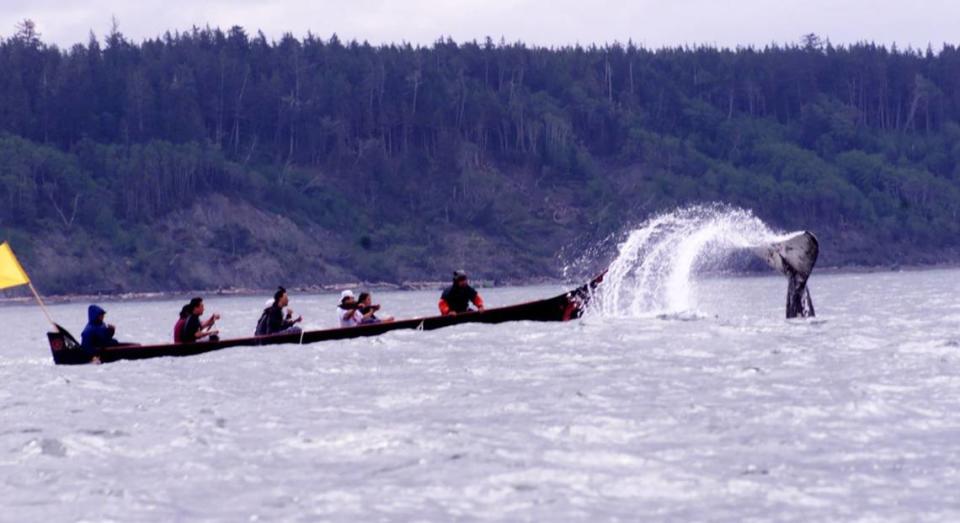Upset the Makah get to hunt a whale? Ditch your colonialist view of wildlife | Opinion
Last week, after my children were released from school for the year, my family and I hit the road for the Oregon Coast for a few days away from the Interstate 5 corridor. We played on the beach, visited local shops and simply enjoyed a change of scenery. As an outdoorsman, one of my favorite coastal activities — aside from fishing — is to observe wildlife of all kinds, from the tide pools to the passing Gray whales just offshore.
It was an interesting juxtaposition, sitting there with my binoculars hoping to catch a glimpse of these charismatic megafauna, given a recent announcement from the federal agency tasked with overseeing whale populations and management with a local Indigenous tribe.
The National Oceanic and Atmospheric Administration (NOAA) and Makah Tribe recently reached an agreement that will allow the tribe to once again harvest Eastern Pacific Gray whales in accordance with treaty-protected rights dating back to 1855.
Perhaps one of the whales the Makah will soon harvest was swimming offshore in front of me, unwittingly on a collison course with tribal hunters hoping to realize their treaty rights and cultural heritage.
As you might imagine, some folks are upset about this. In response to the NOAA’s Instagram post announcing news of the agreement, supposed champions of wildlife and the environment called the Makah’s practices “ridiculous,” “outrageous” and an “ancient tradition.” One person even went so far as to claim that they care more for the whales than the Indigenous people who relied on the magestic animals for their well-being. One can only assume that such “champions” are oblivious to the tribe’s generational reverence for the whales, which is so significant that they honor them within their culture.
The Makah Tribe does not simply have an existential connection to the well-being of whales. Their connection is not political, academic or philosophical. Rather, it is cultural and spiritual. It transcends European philosophy; it is something wholly its own and critical to the culture of the Makah people.
When the United States established treaties with local Native American tribes, the tribes requested the right to hunt, fish and gather in their “usual and accustomed places.” For the Makah, this included the rights to harvest whales.
Because of the impacts of European colonizers who hunted whales commercially, the Makah were unable to harvest whales for decades. However, in 1999, the tribe harvested its first whale in more than 70 years over the objections of extremist groups who believed that their colonialist view of wildlife and the environment superseded indigenous practices and their protected treaty rights. Those same extremists were able to block the tribe from exercising their rights and preserving their culture for the past two decades, weaponizing the courts against them.
Blaming Indigenous practices for the decline of whales or any other wildlife — like Pacific salmon — amounts to blaming the victim rather than accepting responsibility for the impacts created by the white majority.
The next time you feel the urge to clutch your pearls when you see an Indigenous person or tribe exercising their treaty rights and cultural heritage, stop and use the opportunity to learn and to better understand our state’s colonialist history — including what was agreed to in the treaties signed by Native tribes, and the critical importance of Indigenous activities and practices to their cultures.
And if you are fortunate enough to see a passing Gray on the coast?
Wish them well, with an appreciation for the many relationships humans can have with the environment and its wildlife.
Jordan Rash is freelance writer, podcaster, outdoorsman and conservation advocate in Tacoma. He’s spent a career on and around the forests, mountains, wetlands and rivers of the Pacific Northwest fighting wildfires, developing public policy and leading conservation efforts.



